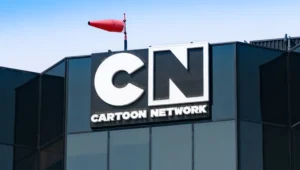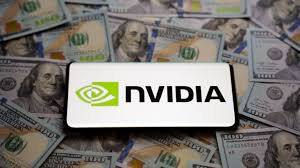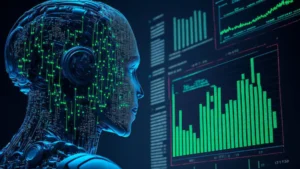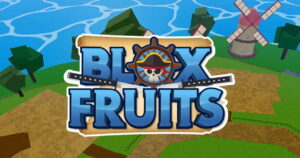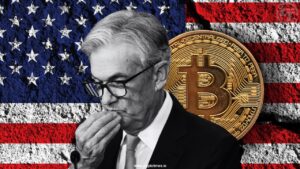Dc Universe

Introduction
The DC Universe (DCU) is among the most iconic and enduring superhero brands on the planet. Featuring iconic characters such as Superman, Batman, Wonder Woman, and The Flash, the DC Universe has entertained fans via comics, movies, animated shows, television programming, and a continually expanding cinematic universe. From the pages of Detective Comics in the 1930s to billion-dollar movies, the DC Universe has changed beyond recognition over the decades. This article explores the history, development, most important characters, cinematic universe, multiverse concept, and what the future is for DC fans.
The Origins of the DC Universe

The Golden Age of Comics (1930s–1950s)
The DC Universe started off with the introduction of Superman in Action Comics #1 (1938). Co-created by Jerry Siegel and Joe Shuster, Superman as the first proper superhero laid the foundation for a new genre. Characters such as Batman (1939) and Wonder Woman (1941) soon followed, making DC Comics a formidable force to be reckoned with. These heroes were a symbol for truth, justice, and the American way by World War II, determining generations’ moral compass.
The Silver Age (1956–1970)
The Silver Age featured DC revamping its roster with new takes on old characters. Barry Allen Flash and Hal Jordan Green Lantern brought with them contemporary science-fiction fare. The period also witnessed the creation of the Justice League of America (JLA) in 1960, bringing DC heroes together under one superteam.
The Bronze Age & Modern Age (1970s–1990s)
The Bronze Age emphasized socially significant storytelling. Batman darkened and became more detective-oriented, while Green Lantern and Green Arrow addressed political and social concerns. The Modern Age gave rise to anti-heroes such as John Constantine, Lobo, and The Watchmen, which were more gritty in tone.
Major Heroes of the DC Universe

Superman
More commonly known as the “Man of Steel,” Superman is the ultimate superhero. Born on the ill-fated planet Krypton as Kal-El, he was sent to Earth and adopted by the Kents in Smallville. With superhuman strength, the ability to fly, x-ray vision, and invulnerability, Superman is the conscience of the DC Universe.
Batman
Bruce Wayne, the billionaire playboy turned crime-fighter, became Batman after witnessing his parents’ murder. Unlike other heroes, Batman has no superpowers—his intellect, detective skills, and martial arts expertise make him formidable. He operates out of Gotham City and often faces foes like the Joker, Two-Face, and Bane.
Wonder Woman
An Amazonian princess, Diana of Themyscira is also a warrior and a diplomat. She possesses the Lasso of Truth, bracelets of submission, and a mystical sword. Her tales usually center around mythology, feminism, and heroism.
The Flash
A number of characters have wielded the title of The Flash, but the best known is Barry Allen. Due to his power of superhuman speed, The Flash can travel back through time and between universes, making him integral to DC’s use of the multiverse.
Aquaman
Atlantean ruler Arthur Curry serves as the gateway between the world above water and the sea. Wielding the Trident of Poseidon, he is a vital Justice League member and instrumental in environmental and underwater plots.
DC Villains That Define the DC Universe

Joker
Perhaps the most recognized comic book villain of all time, the Joker is the anarchic opposite of Batman’s order. With no predetermined origin, he is the embodiment of madness, anarchy, and the danger of evil.
Lex Luthor
The arch-enemy of Superman, Lex Luthor is a genius-level scientist and businessman who feels the world needs to be rescued from Superman. His intelligence and resources make him a threat to the world.
Darkseid
A godlike entity from the world Apokolips, Darkseid is consumed with discovering the Anti-Life Equation in order to dominate all sentient life. His power, intellect, and ruthlessness threaten the cosmos.
Other Memorable Villains
- Sinestro (Green Lantern’s deceased mentor)
- Deathstroke (Adept mercenary)
- Brainiac (Alien AI with a desire for knowledge)
- Reverse-Flash (Flash’s time-traveling arch-nemesis)
The DC Multiverse Explained

What Is the Multiverse?
The DC Multiverse is a series of parallel universes with alternate versions of well-known characters. First introduced in “The Flash of Two Worlds” (1961), the multiverse enables DC to write multiple storylines at once.
Major Crises and Reboots
Crisis on Infinite Earths (1985–1986): Combined several Earths into one continuity. Infinite Crisis (2005–2006): Revisited multiverse themes with darker undertones. Flashpoint (2011): Barry Allen manipulates the timeline, causing the New 52 reboot. Rebirth (2016): Combined pre-Flashpoint continuity with the New 52. Dark Nights: Death Metal (2020): Culminated in the present Infinite Frontier era.
The Cinematic DC Universe (DCEU and Beyond)

Early DC Films
DC superheroes have been featured in live-action movies since the 1940s. However, it wasn’t until Richard Donner’s Superman (1978) and Tim Burton’s Batman (1989) that DC movies became cultural touchstones.
The DCEU (DC Extended Universe)
The DCEU was introduced in 2013 with Man of Steel with the vision of creating a cohesive universe like Marvel’s MCU.
Main DCEU Movies:
- Man of Steel (2013)
- Batman v Superman: Dawn of Justice (2016)
- Suicide Squad (2016)
- Wonder Woman (2017)
- Justice League (2017)
- Aquaman (2018)
- Shazam! (2019)
- The Suicide Squad (2021)
- Black Adam (2022)
- The Flash (2023)
Zack Snyder’s Vision
Director Zack Snyder also had a very different, darker vision for the DCEU. Following fan pressure, his cut of Justice League—the Snyder Cut—appeared in 2021, receiving critical acclaim and reviving fan trust.
The DC Universe Reboot
In 2022, James Gunn and Peter Safran replaced James Gunn and Peter Safran as DC Studios heads, announcing a new DC Universe (DCU), with fresh initiatives beginning with “Superman: Legacy” (2025).
The DC Animated Universe (DCAU)
DC’s animation studio has produced critically successful content for generations.
Notable Animated Series:
- Batman: The Animated Series (1992–1995)
- Superman: The Animated Series (1996–2000)
- Justice League / Justice League Unlimited (2001–2006)
- Young Justice (2010–present)
Animated Films
DC’s animated films such as “The Dark Knight Returns,” “Flashpoint Paradox,” and “Justice League: War” have been successful, often more faithful to the comics than live-action versions.
The Impact of DC Comics in Pop Culture

Comic Book Innovation
DC pioneered a lot of narrative conventions utilized today. From “Elseworlds” stories to dark anti-heroes, it’s always breaking the mold when it comes to storytelling.
Merchandise & Video Games
DC merchandise—from toys to costumes—conquers the world. Games such as Batman: Arkham series, Injustice: Gods Among Us, and LEGO DC Super-Villains have received both critical and commercial acclaim.
Fan Communities & Events
The likes of DC FanDome unite fans from around the world, while cosplay, fan fiction, and merchandise flourish on the internet.
The Future of the DC Universe
Future Films and Series
New DCU Chapter 1: “Gods and Monsters” features:
- Superman: Legacy (2025)
- The Brave and the Bold (new Batman introduction)
- Supergirl: Woman of Tomorrow
- Swamp Thing Booster Gold (TV series)
Storytelling Focus
With James Gunn at the helm, character-driven, logically cohesive stories are the priority over mere shared universe building.
Growing into Streaming
With the likes of Max (formerly HBO Max), DC aims to make film and television narratives more cohesive.

Conclusion
The DC Universe is a sprawling, rich mythology that has shaped pop culture for nearly a century. From comic panels to cinema screens, from animated epics to immersive video games, DC continues to evolve while staying true to its roots. As the new era unfolds under fresh leadership, fans can expect a bold, emotionally resonant universe that honors the past while paving the way for the future. Whether you’re an old-timer or a new fan, there’s something for everyone in the DC Universe—hope, justice, courage, an

